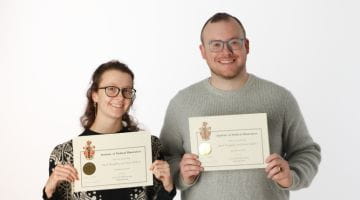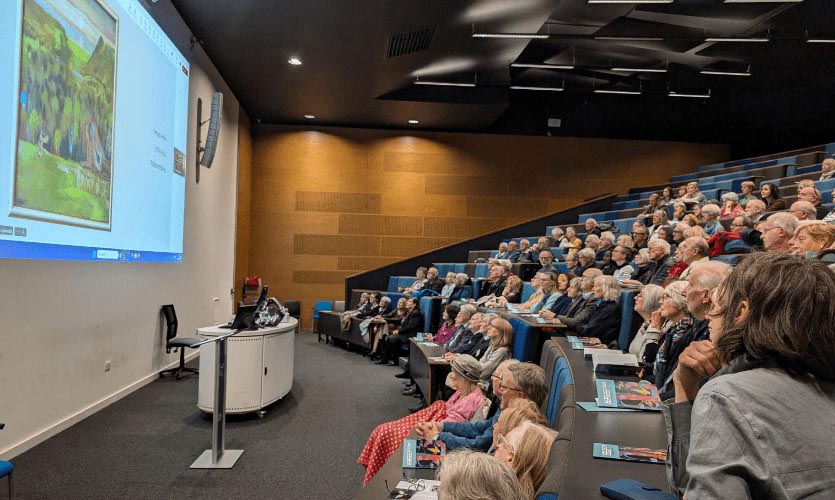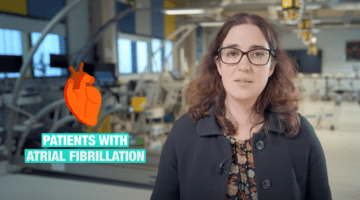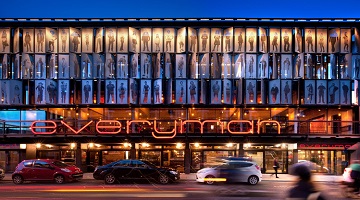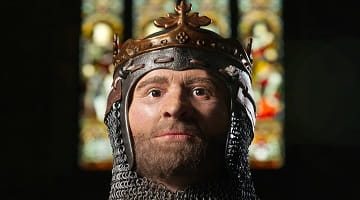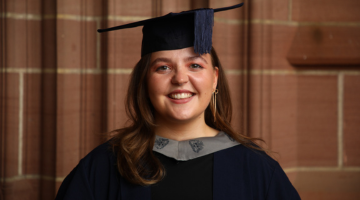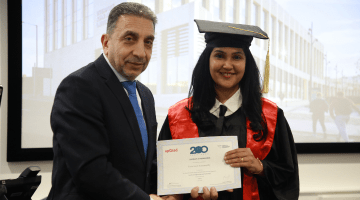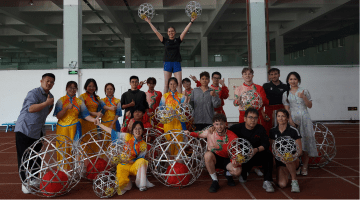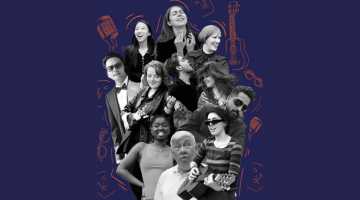About this course
This unique Art in Science programme provides exciting opportunities for artists and scientists to collaborate and explore the boundaries of art and science.
- Enrol on an innovative programme, collaboratively developed with academic experts across a number of disciplines that include: Art and Design, Sports Science, Microbiology, Forensics, Public Health, Evolutionary Anthropology, Astrophysics, and Museum Practice
- Enjoy access to a number of different established research centres across Liverpool John Moores University
- Explore the relationship between art and science, including the historical and theoretical connections between art and science as cultures and practices, and understand how these ideas translate into contemporary experiences
- Develop real world skills on a programme unique to the UK and decide which areas of art and science you wish to investigate as you progress through the programme
- Explore art-science practice-based or practice-led research in unexpected forms
- Take advantage of the generous Michael Pugh Thomas and Julia Carter Preston Legacy £1000 scholarships offered to postgraduate applicants
- This programme is also available in full-time study mode
Art and science are often seen as two different entities with very separate ideas of what constitutes research. The MA Art in Science programme at Liverpool School of Art and Design aims to bring together artists and scientists to explore collaborative approaches in art and science.
Increasingly, collaborations between artists and scientists are a feature of our cultural landscape. Traditionally this relationship has been perceived as art in the service of science, whereby artists use their skills to visually interpret or communicate complex scientific ideas, objects or forms. However, a hybrid form of research has emerged over the last 30 years where artists and scientists are interested in the creative possibilities and speculative futures of the intersection of these two cultures.
This programme provides opportunities for collaborations across the visual arts and the world of scientific enquiry, and encourages inter-multi-transdisciplinary creativity based on the skills that you bring with you to the programme and those you develop during your research experience. The programme fosters an inquisitive approach whereby the focus is on encounters with new practical skills and ideas to develop an art-science praxis at the cutting edge of making, research and collaborative practice.
Students on this programme will explore art-science in unexpected forms and work collaboratively with practitioners and researchers across art and science disciplines, including Art and Design, Sports Science, Microbiology, Forensics, Public Health, Evolutionary Anthropology, Mathematics, Astrophysics and Museum Practice, and with other students on studying MA programmes at Liverpool School of Art & Design.
We have access to a number of different research centres and cultural institutions at LJMU and the Liverpool City Region to support the learning experience, including the Astrophysics Research Institute, the Research Institute for Sports and Exercise Sciences, the Public Health Institute, the Forensic Research Institute, Liverpool School of Tropical Medicine, Liverpool Medical Institution and National Museums Liverpool.
Collaborative opportunities enable you to specialise throughout the programme and, on graduation, you will leave with a portfolio of practical skills in areas such as visual interpretation and presentation of complex scientific ideas. You will develop an understanding of the research skills required to be employed as an artist in a scientific field, including an understanding of ethics and public engagement. As a graduate you will be able to apply critical and practical skills, research techniques and understanding of art-science praxis in your chosen career.
Course modules
Discover the building blocks of your programme
This course is currently undergoing its scheduled programme review, which may impact the advertised modules. Programme review is a standard part of the University’s approach to quality assurance and enhancement, enabling us to ensure that our courses remain up to date and maintain their high standard and relevancy.
Once the review is completed, this course website page will be updated to reflect any approved changes to the advertised course. These approved changes will also be communicated to those who apply for the course to ensure they wish to proceed with their application.
The Art in Science MA at Liverpool School of Art and Design focuses on transdisciplinary practice and discovery at its core. You will be encourage to work across disciplines and critically analyse the concepts, values and debates that inform study and practice in the field.
Your programme is made up of a number of core modules which are part of the course framework, and feature a dissertation and extended research project to demonstrate your advanced learning.
Guest lecturers working across art-science disciplines expose you to critically engaged making and design practices, and by visiting, learning from and interacting with globally renowned practitioners and researchers at our partner institutions; you will receive a rich and diverse introduction to a range of international collaborative practices that are at the root of cutting edge art-science collaborative research.
To foster a collaborative research culture, students from all taught postgraduate programmes at Liverpool School of Art and Design share a creative studio. This studio space aims to cultivate an interdisciplinary community that provides students with opportunities to work across disciplines.
Further guidance on modules
Modules are designated core or optional in accordance with professional body requirements, as applicable, and LJMU’s Academic Framework Regulations. Whilst you are required to study core modules, optional modules provide you with an element of choice. Their availability may vary and will be subject to meeting minimum student numbers.
Where changes to modules are necessary these will be communicated as appropriate.
Core modules
Optional Modules
Your Learning Experience
An insight into teaching on your course
Study hours
Teaching across each semester is intensive and varies depending on the modules being studied. The two main teaching days are Mondays and Tuesdays and you are expected to be based in the studio Wednesday to Friday to develop your practice.
Teaching methods
The programme aims to provide a balance of opportunities for you to acquire and develop advanced skills and academic knowledge plus multidisciplinary transferable skills.
Learning on the programme combines experiential elements in studios and laboratories with more formal lecture and seminar based delivery. This is a student-centred programme that recognises the need for you to establish a deep and inquisitive relationship with art and science critical theories and practices, the contexts within which they are deployed and the research against which they are evaluated.
You will participate in lectures, seminars, reading groups, workshops, tutorials, group crits, studio practical work, presentations, exhibitions and publications.
Applied learning
As a student on this programme you may become linked to Liverpool School of Art and Designs Research Institute Institute of Art and Technology (IAT).
The IAT is a world-leading centre for artistic, technological and transdisciplinary research and hosts inquisitive and creative researchers from around the world: all teaching, all learning, all working together for a better future.
As Liverpool's international flagship for cultural and creative research, the IAT is a collective network of artistic research and technologies laboratories, each with a team led by inspiring researchers from four collaborating Schools: Liverpool School of Art and Design, Liverpool Screen School, School of Education and Department of Computer Science.
The MA Art in Science programme operates Liverpool LASER talks across Liverpool City region. Liverpool LASER is part of the worldwide series of Leonardo Art Science Evening Rendezvous (LASER) Talks sponsored by Leonardo, the International Society for Art, Sciences and Technology (Leonardo/ISAST). LASER talks are an international programme of free evening gatherings that bring artists and scientists together for informal presentations and conversations on art, science and technology.
Keep up to date on programme activities by following us on Twitter, Facebook and Instagram @ArtinScienceMA
Explore past student research projects via the School of Art and Designs degree show website www.lsad.co.uk
How learning is monitored on your programme
To cater for the wide-ranging content of our courses and the varied learning preferences of our students, we offer a range of assessment methods on each programme.
The programme is assessed through presentations, proposals, practical projects, reports and supporting documents. The high level of seminar and tutorial contact allows for considerable formative assessment and feedback ahead of the summative assessment for each module.
Where you will study
This programme is based in the Liverpool School of Art and Design's John Lennon Art and Design building, a purpose-built facility in the Mount Pleasant Campus which encourages interaction between different disciplines and the sharing of ideas and expertise. During your studies you will access our research institute, the Institute of Art and Technology (IAT), which comprises four research labs: including: Contemporary Art Lab, Exhibition Research Lab, Face Lab, City Lab, and the X-Lab.
Course tutors
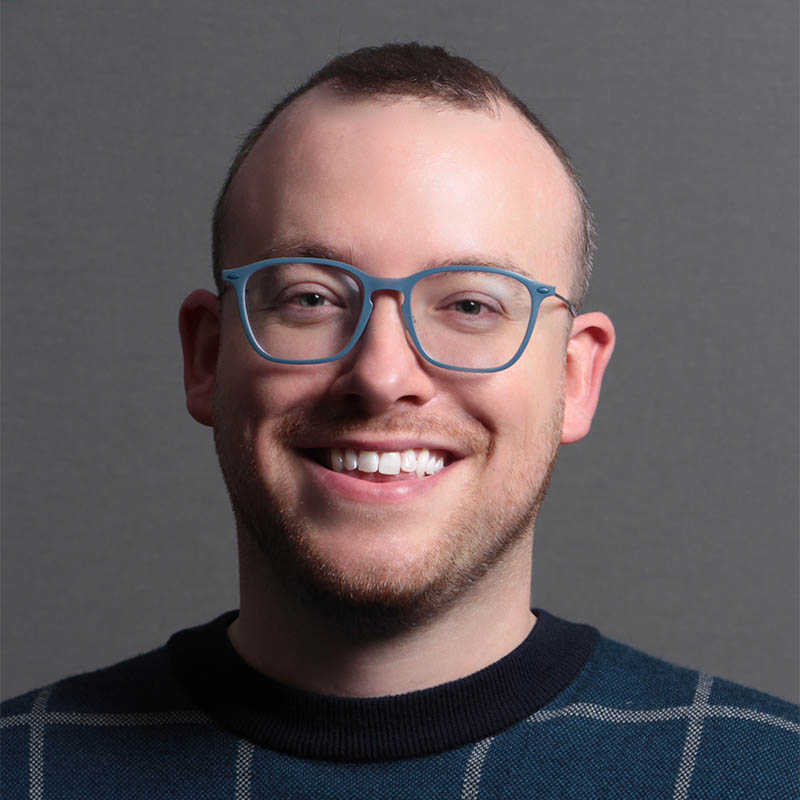
Mark Roughley
Programme Leader
I enjoy collaborating across disciplines and there is a buzz about artists and scientists working together in innovative ways. With exciting collaborative research happening in research centres across LJMU, I am excited to bring together interested individuals to explore and cultivate the growing art-science community in Liverpool and the UK.
I enjoy collaborating across disciplines and there is a buzz about artists and scientists working together in innovative ways. With exciting collaborative research happening in research centres across LJMU, I am excited to bring together interested individuals to explore and cultivate the growing art-science community in Liverpool and the UK.
Mark is a Reader in Interdisciplinary Digital Visualisation at Liverpool School of Art and Design and a member of the Face Lab research group that explores faces and art-science applications. Mark trained as a medical artist, gaining his MSc in Medical Art from the University of Dundee. He specialises in visualising anatomy through 3D data acquisition, modelling and fabrication. Marks research focuses on the affordances that 3D digital technologies allow for both digital and haptic interaction with anatomy and cultural artefacts. Mark is also the host of Liverpool LASER Talks. LASER (Leonardo Art Science Evening Rendezvous) is an international programme of evening gatherings that bring artists and scientists together for informal presentations and conversations on art, science and technology.
-
 Professor
Professor
Career paths
Further your career prospects
LJMU has an excellent employability record with 96% (HESA 2018) of our postgraduates in work or further study six months after graduation. Our applied learning techniques and strong industry connections ensure our students are fully prepared for the workplace on graduation and understand how to apply their knowledge in a real world context.
Our aim is for students to complete the programme in readiness for self-employment or the world of work within their chosen specialist field. On graduation this MA may be used for a range of purposes within public health, biomedical communications, scientific illustration, public engagement with science, and STEAM education. Many graduates may go on to work freelance, however there are also career opportunities in a range of related sectors. Graduates have gone on to secure Artist Residencies with METAL (Liverpool), Independents Biennial (Liverpool) and Open Eye Gallery (Liverpool), and exhibit work nationally at venues such as Plas Bodfa (Wales), or internationally, including at the Science Gallery Melbourne (Australia). Some have worked with national and international museums to engage the public with science in a range of contexts Additionally, graduates have worked as Medical Writers for the National Institutes of Health (USA), and as Production Coordinators for the Science Museum Group (National Science and Media Museum, Bradford). Others have gone on to work as Research Assistants for research institutions with roles that include scientific illustration, public health communications, and public engagement with science through comics and games (Liverpool School of Tropical Medicine, and University of Liverpool). Some have trained as School Teachers or educational technologists, and others have gone on to complete Doctoral Research.
"This programme offers a unique opportunity for artists to collaborate in the world of science and provide impact and knowledge exchange from a number of different fields across LJMU."
Professor Caroline Wilkinson, Director Forensic Research Institute and Face Lab
Tuition fees and funding
- Part-time per credit:
- £49.85
The University reserves the right to increase tuition fees in accordance with any changes to the maximum allowable fees set by the UK Parliament. In the event of such a change, any fee increase will be subject to a maximum cap of 10% of the total course cost as originally stated at the time of your offer.
Fees
The fees quoted at the top of this page cover registration, tuition, supervision, assessment and examinations as well as:
- library membership with access to printed, multimedia and digital resources
- access to programme-appropriate software
- library and student IT support
- free on-campus wifi via eduroam
Additional costs
Although not all of the following are compulsory/relevant, you should keep in mind the costs of:
- accommodation and living expenditure
- books (should you wish to have your own copies)
- printing, photocopying and stationery
- PC/laptop (should you prefer to purchase your own for independent study and online learning activities)
- mobile phone/tablet (to access online services)
- field trips (travel and activity costs)
- placements (travel expenses and living costs)
- student visas (international students only)
- study abroad opportunities (travel costs, accommodation, visas and immunisations)
- academic conferences (travel costs)
- professional-body membership
- graduation (gown hire etc)
Funding
There are many ways to fund postgraduate study for home and international students. From loans to International Scholarships and subject-specific funding, you’ll find all of the information you need on our specialist postgraduate funding pages.
Please be aware that the UK’s departure from the EU may affect your tuition fees. Learn more about your fee status and which tuition fees are relevant to you.
Entry requirements
You will need:
Qualification requirements
How to apply
Securing your place at LJMU
To apply for this programme, you are required to complete an LJMU online application form. You will need to provide details of previous qualifications and a personal statement outlining why you wish to study this programme.
Your university life
From accommodation and academic support to clubs and societies. Find out what LJMU has to offer.
Related Links
Talk to our students
Connect with a current LJMU student for advice and guidance on university life, courses and more.
See what our students are saying
At LJMU we want you to know you’re making the right choice by studying with us. You can see what our students are saying about their experience with us through their reviews on the following websites:
Related Links
News and views
Browse through the latest news and stories from the university
The University reserves the right to withdraw or make alterations to a course and facilities if necessary; this may be because such changes are deemed to be beneficial to students, are minor in nature and unlikely to impact negatively upon students or become necessary due to circumstances beyond the control of the University. Where this does happen, the University operates a policy of consultation, advice and support to all enrolled students affected by the proposed change to their course or module.


















